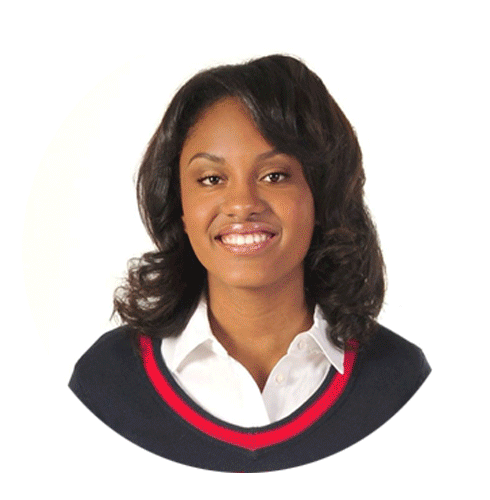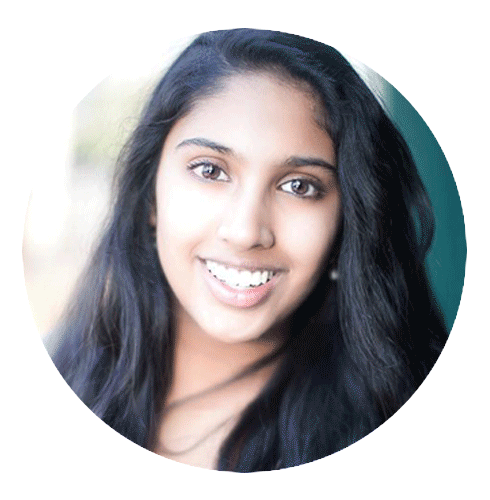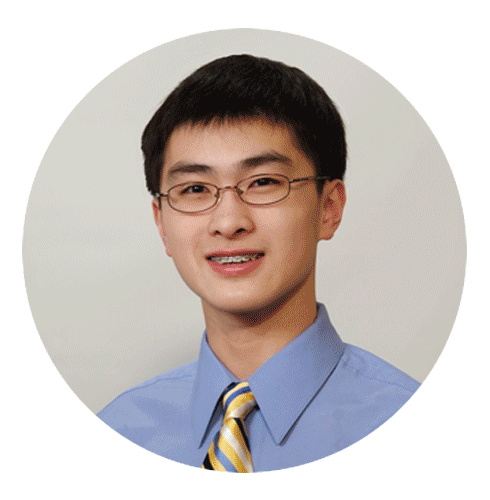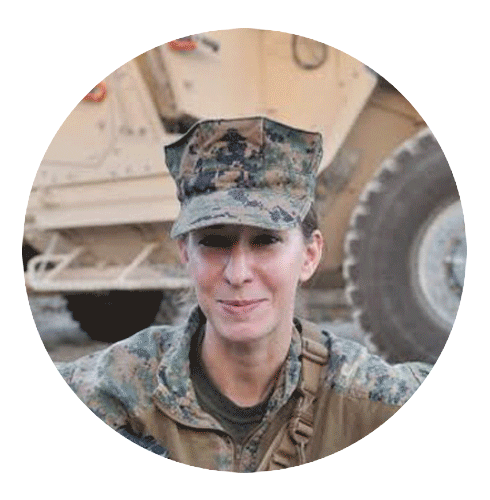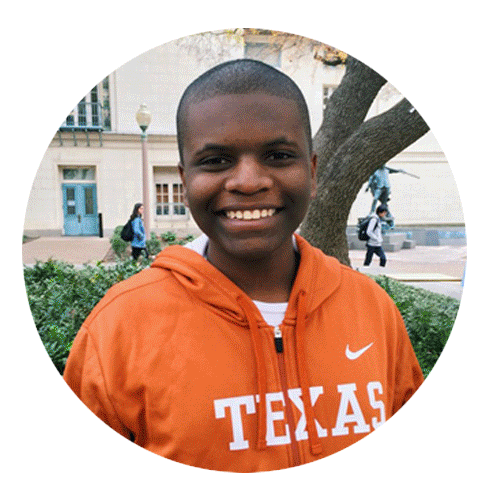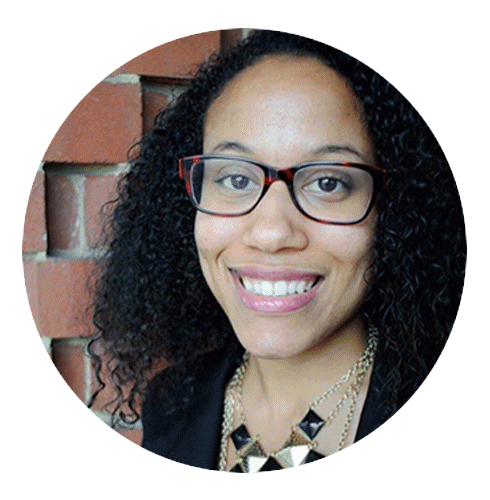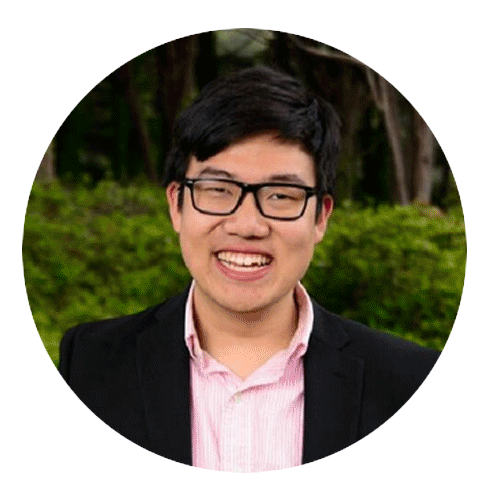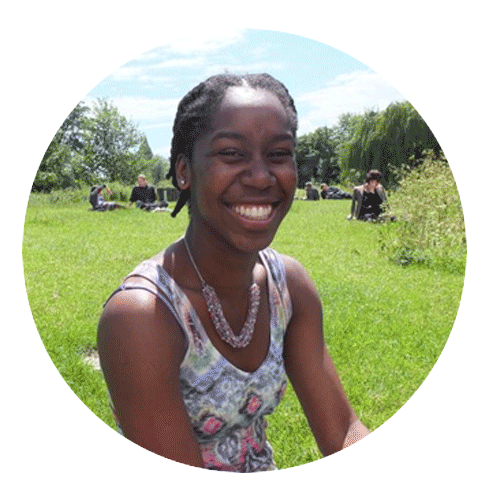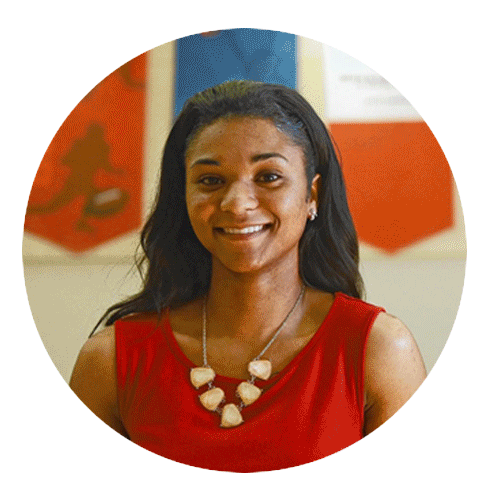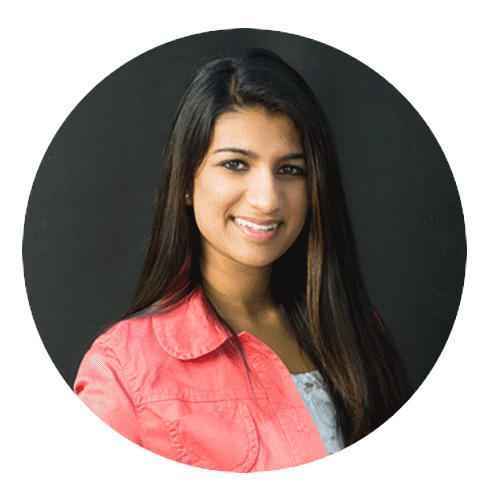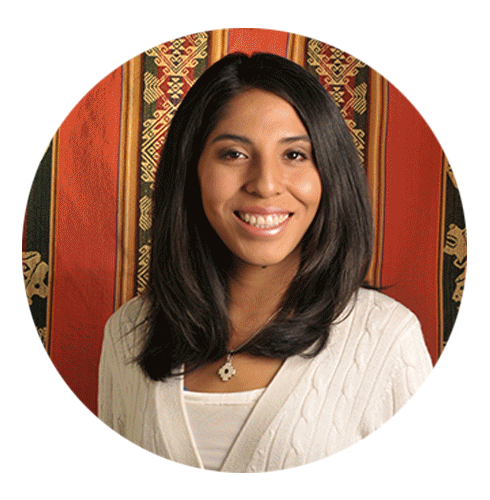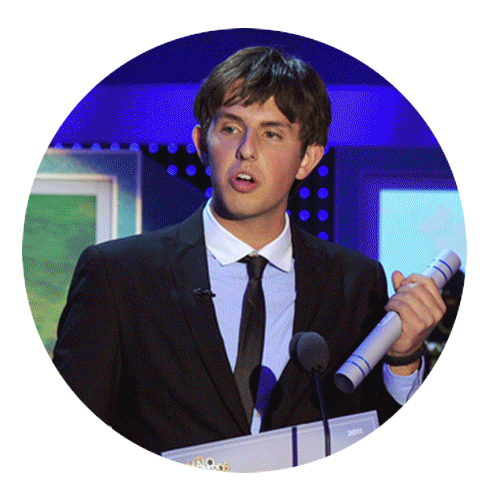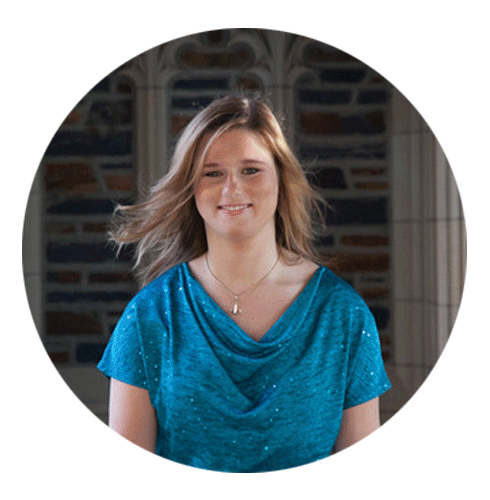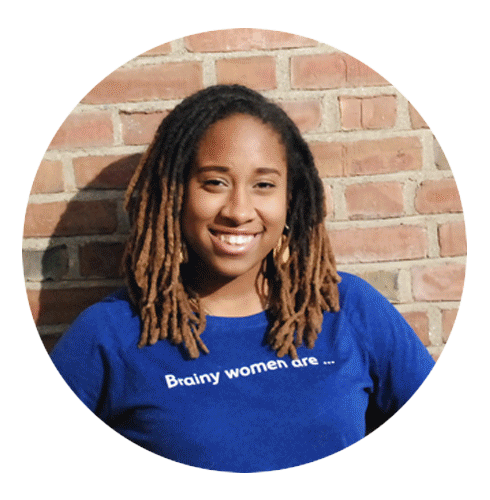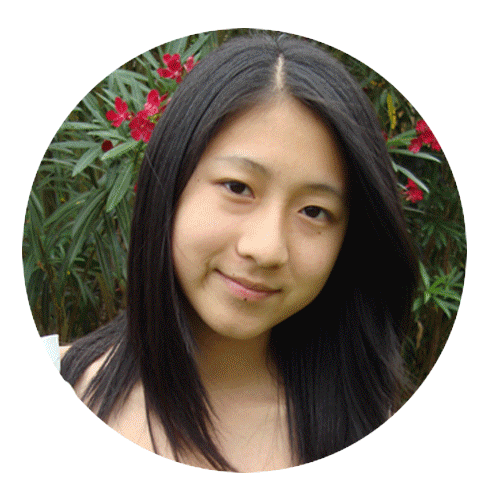The youth of America get an unfair rap. We’re too consumed by cellphones and social media, they say. We waste our time taking selfies and binge-watching TV, naysayers complain. But look a little closer, zoom in on the map of America, and you’ll find that that generalization certainly does not and should not apply to all of us. Youth in every region are setting examples for their peers, affecting political change, and tackling head-on the globe’s most pressing issues. In Colorado, you’ll find a young girl running her own foundation to support impoverished children in Peru. In Texas, you’ll find a young boy collecting coats for the homeless in his hometown. In New Hampshire, you’ll find a college student mentoring the world's next tech geniuses and increasing the visibility of people of color in the industry.
Young people from coast to coast are leading the charge for a better tomorrow. Here are just a few inspiring and exceptional 18 to 24 year olds making a difference in their communities.
It’s never too early to change the world. The proof is in Allyson Carpenter. Last year, the political science major at Howard University became D.C.’s youngest official, as Advisory Neighborhood Commission for Ward 1. In her position, which she ran for when she was just 17 as a freshman in college, she’s tasked with fielding programs and policies that affect her neighborhood, which includes everything from police protection to sanitation and trash collection.
“I ran for local office [because] I was deeply troubled by the problems facing my community. It’s been my goal to fight for affordable housing for low-income families and college students in my district, a major challenge in the rapidly gentrifying D.C.,” said Carpenter, who admits that she got into public service because she understood what it’s like to live in poverty. “Working against money-hungry developers and disconnected politicians has been difficult, especially as the youngest official, but I am finding my strength in the people I represent.”
Carpenter, whose goal it is to represent Ohioans in Congress someday, couldn’t look more comfortable as a world leader already. She carries herself with a poise that says she was born for this. At a Black History Month event at the White House, Carpenter had the honor of introducing Michelle Obama at a panel of intergenerational women who had a role in the civil rights movement. When she clocks out at Capitol Hill, Carpenter spares whatever time she’s got left to host BET’s What’s at Stake, a web series that hosts roundtable conversations and campus meet-ups on everything from education to unemployment.
What were you doing when you were eight years old? Chances are, it wasn’t what Pooja Dharan was doing. That is, unless you were also founding a nonprofit organization that aims to get youth around the globe to work towards the United Nations’ Millennium Development Goals. By the time she was a teenager, the Maryland native and her organization, Lil MDGs, were already well on their way to fighting poverty and hunger, working toward universal primary education, tackling diseases like AIDS, and achieving environmental sustainability.
“When I was six years old, I went to India for a visit…I walked on the streets and saw children on the sides begging for food. At the time it upset me to see people living like that, and I wanted to help them out but did not know how,” Dharan recalls about what inspired her to start the organization. “My cousin Dylan had similar experiences during his visits before and when I returned to the US, the two of us discussed this…My aunt, Dylan’s mother told us about the UN MDGs, which focused on a variety of needs for third world countries, including India, and said that we should work on achieving them...That was the beginning of our organization.”
Tallying up the numbers today, Lil MDGs has called over four million children in the world to action and has a steady roster of over 24,000 volunteers in 41 countries. And the specific stories are even more impressive: Pooja and her team have worked with the UN Development program to build a dorm for a school in Tibet, they funded clean water systems in Uganda, and they collaborated with American soldiers to help distribute school supplies to children in Iraq. Slowly but surely, she and her team are creating a brighter future.
Be the example. That’s apparently what Christopher Yao is living by. Grand stories aside, Yao simply saw a world in need, and made the easy decision to dedicate his life to serving it. In 2007, Yao founded the entirely youth, volunteer-run Kids Change the World, a nonprofit organization that mobilizes youth around the world to take part in tacking global issues—nothing to Kids Change the World is off limits. Through its Education Preparation program, Kids Change the World provides students in Title I schools and needy communities around the world with hundreds of educational materials, school supplies, and books each year. Additionally, the organization provides free health care to children around the world: its flagship program, Smiles for Lives, funds life-changing cleft-lip and cleft-palate surgery for children who cannot afford otherwise.
“When I began middle school, I was diagnosed with an under-jaw bite. Doctors said that I needed to receive a long and stressful corrective surgery and set of treatments the New York native wrote in an article for Huffington Post.
Today, Yao is now an internationally recognized public figure and philanthropist, earning recognition from President Barack Obama, former President George H.W. Bush, the United States Department of Education, various corporations including Nestlé USA and Prudential Financial and the Corporation for National and Community Service. In 2015, Yao was the only freshman to be named one of the “most impressive undergraduates at the University of Pennsylvania,” and in 2013, was awarded the Power of Children Award by the Children’s Museum of Indianapolis. As a piece of advice, Yao leaves this message for those inspired to act: “Always remember that no dreamer is ever too small, and no dream is ever too big. Everything that ones do should have an aim of service to society.”
“I’m trying to find the best way to save the world,” Reaghan Odhner tells The Stanford Daily. Before transferring to Stanford University, Odhner spent four years of active duty in the Marine Corps. Deployed in Afghanistan, Odhner, who had then been trained to work with weapons systems, found a different calling entirely, as she worked with the Female Engagement Team. As a part of it, Odhner worked with another female Marine to help build relationships with the locals and worked on community improvement projects.
“I loved the local people and the kids were just the most amazing thing,” Odhner tells the Daily. Thus, when she returned home, she decided to enroll in college at Stanford, where she’s now studying Economics with the hope of one day serving the lives of people in developing countries, like those she witnessed in Afghanistan.
But it hasn’t been smooth sailing. After a few months at Stanford, she was diagnosed with stage-two blood cancer, forcing her to leave and battle it out. Now, back in school, she's working on a program to help veterans transition into civilian life, as well as volunteering her time as the Director of Undergraduate Operations in the Service 2 School program. With Service 2 School, she helps veterans adjust to college life.
Comfort and Joy, a nonprofit committed to purchasing clothing for homeless families in Texas, as well as providing resources for local homeless shelters, has been a passion project for its 19-year-old founder Nicholas Cobb for as long as he can remember. At four years old, he witnessed a homeless family living under a bridge in San Antonio, and was instantly moved to help them, and others in their position, in any way he could.
While he spent most of his childhood donating little soaps, clothing, and other necessary goods to those in need, at 16, he finally got Comfort and Joy up and running. “The first project for Comfort and Joy was my Eagle Scout project. That first year, I’d raised $3,400 and got 129 coats for the Samaritan Inn homeless shelter,” Cobb, who had spent his childhood as a Boy Scout, says. To raise the money, he took the grassroots way, doing everything from sending out fliers and emails to leaving a penny jar at his local barbershop.
Although he’s studying Computer Science at the University of Texas: Austin in hopes of getting into gaming or web development one day, Cobb admits that Comfort and Joy has changed his life forever. “The first year at Comfort and Joy, there was a woman I gave a coat to, and she said something that stayed with me: ‘Once I get out of my situation, I’ll do something just like you did,’” recalls Cobb. “It’s inspiring because it tells me that not only am I doing something to help them, it’s also inspiring other people to pay it forward.”
Marleny DaRosa isn’t one to sit around and wait for change to happen. She takes charge. In the wake of last year’s Boko Haram kidnappings, DaRosa, along with Elina Ruvalcaba and Shawnese Morris, launched the online community Africa’s Women of Valor, committed to raising awareness about sexual violence against women as a result of civil wars and conflict and protecting the rights of women not just in Africa, but around the globe. “Horrific reminders like [Boko Haram] strengthen [my belief in] the work that needs to be done in order to advocate for women’s rights everywhere,” Da Rosa tells USA Today.
But her passion in women’s rights has been brewing for a while. A graduate of Mount Holyoke, DaRosa’s witnessed first hand these injustices toward women. In a personal article for Ayiba Magazine, she recounted a study abroad opportunity in the Netherlands, where she got to sit in on the sentencing hearing for former Liberian president Charles Taylor, a man indicted for his involvement in war crimes. As she heard horror stories about the abuse against women and children, her life changed. “It seems unfathomable to me that I should keep still and watch as these atrocities continue. I discovered my purpose,” she writes. “My freedom means nothing if the freedoms of other women are consistently jeopardized.”
There’s no such thing as being too idealistic. Look to Seal-Bin Han. He’s become a pro at exceeding expectation. The 20-year-old John Hopkins student founded the World Youth Initiative, a non-profit organization geared towards helping students across the world with their philanthropic efforts, and ShapeU, a motivational fitness app.
But getting these projects off the ground wasn’t exactly easy. He had to be his own motivator. The Korean-American Luce Leadership Award winner admits that he had to battle through his own shortcomings, as well as the critiques of his naysayers. "At first, everything was, frankly, extremely disorganized," Han told Huffington Post. "I was inexperienced and naïve, but I had a lot of passion in wanting to fix how more often than not, adults don't take young students seriously. They tease a student's ambitions for being too idealistic or not possible in a 'real world setting.' This youthful vision coupled with a willingness to fail is what sets [WYI] apart from many other organizations in the same space and it's this exact vision that has been able to push us forward."
Going into MIT as a mechanical engineering major, Sarah McMillian already had her future mapped out: the Washington D.C. native would work in the Middle East. “When I began studying Arabic in high school, I found a worthwhile target for my engineering ambitions,” McMillian says. “I decided to study Arabic because I saw that the U.S. would have a prolonged presence in the region and I wanted a better understanding of the societies and cultures. It’s led me to interesting places."
That it has. Spending the 2013-14 school year at the University of Cambridge, McMillian co-founded the Cambridge Tabadol Project. The student-run initiative aims to empower global youth to pursue careers in science, technology, engineering, and mathematics, beginning with students in Jordan, Palestine, and the wider Levant region. “From having taught in Palestine, I understood how at odds the teaching methods and curricula in the MENA region were with producing creative thinkers. And the region desperately needs them to solve local challenges and remain competitive internationally,” McMillian says about the project. “We wanted to support Jordanian engineering students in leading creative thinking workshops at local high schools. The peer-to-peer outreach model is great because it leverages local capacity and builds a mentorship network.”
Since graduating college, she’s been working as an intern for the USAID Jordan Competitiveness Program, where she evaluates growth opportunities in the local Cleantech and IT sectors. This September, she began her 10-month post as a Fulbright English Teaching Assistant to Bahrain. When she finishes, McMillian plans to move back to the D.C. area to be closer to her family and ultimately get her PhD in Urban Studies and Planning. Says McMillan, “Though I gave up trying to be a traditional engineer some time ago, I always want to be part of the engineering and tech scene and maintain my original mission to help solve some of the world's most stubborn challenges.”
Maryah Sullivan is the prime example of hard work paying off. After 12 years as a member of the Boys & Girls Club in her native Eatonville, Fla., she was recently named the organization’s National Youth of the Year. To deserve the honor, she went way beyond the call of duty: She served as the president of her Keystone Club, became the volunteer and college tour coordinator, and volunteered at the Ronald McDonald House and the community nursing home. She even helped paint homes for the elderly. But really, all this service is just Maryah’s way of showing gratitude and paying it forward.
“At first, the Boys & Girls Club was a place to go for fun and hang out with friends but it turned out to be a lot more than that. They were a second family to me,” Sullivan said. “The things my family and I didn't have, the Boys & Girls Club provided for us. One Christmas, my mom didn't have the money to buy us Christmas gifts, so Christmas Eve, our club director came to our house with a bag full of presents and it made our holiday.”
For her superhuman work ethic, she credits her mother, who had Maryah in her late teens, as her driving force. Now, Maryah’s the first person in her family to attend college, studying pre-med at the University of South Florida, after which she hopes to be a neurosurgeon. Forget just being superhuman, Maryah’s on her way to becoming a real-life superhero.
Neha Gupta, currently a pre-med student at Penn State’s Schreyer Honors’ College, has always known her calling: to heal the lives of children all over the world. As a kid visiting her parents’ hometown in India, the future pediatric doctor enjoyed participating in her family’s tradition of celebrating birthdays by delivering gifts to orphans. While she did this several times, it was one moment, when she was nine years old, that made her decide to bring that tradition back home and expand it globally.
“I made a connection... I made friends with Gayatri, a girl from the orphanage, and it was through this friendship that I understood for the first time what it truly meant to have nothing,” Gupta says in her acceptance speech for the International Children’s Peace Prize. “On that day, a group of girls was teasing her because she didn’t know her own birthday. I was shocked...I realized something I treasured so dearly might not be available to all children. What seemed miniscule but actually crucial in our age made me realize the stark difference between our lives… The future that likely awaited these children terrified me. In that moment, I knew that I had to take action to help these children have hope. ”
Thus Empower Orphans was born—an organization that helps kids become self-sufficient by providing them with the tools they need for basic education and technical skills to not just survive in society, but also make positive contributions to it. The organization also provides food, clothing, and medical supplies to establish a better learning environment.
Ana Dodson knows what it means to be given a chance at a better life. Born in Peru, Dodson was adopted from an orphanage at the age of 3 and was raised in Colorado, where she now attends Colorado College. Curious about the land she once called home, she visited the shelters in Peru in 2003.
“The Hogar de Niñas near Anta is a small orphanage in the hills outside Cusco, Peru. It was not one of our scheduled orphanages to visit because it is so small and remote, but when I found out about it, I really wanted to go there since it is near where I was born,” Dodson wrote on her website. “When we went to the hogar, I gave the children the books and teddy bears. They greatly appreciated the gifts, but our presence clearly had a larger impact than the items we brought with us. We soon learned that the orphanage had never had visitors before, and I imagined what it must be like to live as those girls did.”
Returning stateside, she was determined to alleviate the struggles of the children she came across, especially young girls. So, at the age of 11, Dodson founded Peruvian Hearts, an organization that not only gives aid to children in extreme poverty, but under the program Peruvian Promise, offers leadership and mentoring classes for young girls, as well as scholarships. Of course, that’s in addition to another campaign Dodson is involved in: One Billion Acts, a social justice initiative determined to record one billion humanitarian projects around the world in the next five years, which is also sponsored by Desmond Tutu and the Dalai Lama, among other Nobel Laureates.
As early as they can remember, Kyle Weiss and his siblings, Garrett and Kira, bonded over their family sport of soccer. Yet, no one ever saw it evolving in their lives in the way that it did. It was a fateful trip to the 2006 World Cup in Germany that changed everything. Noticing a small crowd of extremely passionate Angola fans in the stands—it was Angola’s first year in the World Cup—brothers Kyle and Garrett Weiss were awestruck by their commitment. The Angola team wasn’t a favorite by any definition, but just seeing how much soccer meant to their citizens opened up the Weiss’ eyes.
“We discovered that just earning the right to make it to the World Cup was a major achievement for this impoverished country. Organized sports are a luxury that most cannot afford,” write Garrett and Kyle Weiss on their site. “Daily life for many African children consists of little or no education, near starvation, and fear for many that their parents have been infected with HIV. Short of the basic necessities needed to survive luxuries, such as sports, are a very low priority in their lives. “
In 2007, FUNDaFIELD was born. A non-profit organization, which raises money to build soccer fields for kids in Africa—the organization believes in the idea that sports is a therapeutic coping mechanism for children in developing countries. Now, Kyle Weiss, a recent graduate of Claremont McKenna College, heads the ship as executive director of the organization. His sister is the director of operations and web sales, and his older brother Garrett is still on as co-founder.
You’re looking at a genius. Brittany Wenger has been dabbling in artificial intelligence since the seventh grade, eventually creating her own A.I. program in the span of three years that learned to play soccer. By 2012, she had taken her experiments to the next level. That year, Wenger won the Google Science Fair for developing a software network that could detect breast cancer through a minimally invasive procedure with 99.11 percent accuracy, called Cloud4Cancer. Admittedly, the project was inspired by someone close to her.
“When my cousin got breast cancer, she was telling me about how difficult the diagnostic process was. I researched and found out about fine-needle aspirates, which are the least invasive, quickest, and cheapest [diagnostic] procedures that a woman can have,” Wenger told TED in 2013. “Right now, they’re wildly inconclusive, so a lot of doctors refuse to use them. Only about five hospitals in the United States still use the procedure. I was really interested in trying to revive them, and when I found out that the major problem was how difficult the patterns were for pathologists to diagnose, I wanted to create a tool to aid the doctors.”
Today, Wenger, a Duke University student, is still compiling samples from the worldwide hospital community to improve the service. Since being crowned champion, Wenger has been scheduled for multiple TED Talks, conferences, and panels to share her wealth of knowledge. Most recently, she spoke on a panel run by Chelsea Clinton on the role of big data in society.
Kaya Thomas is sitting in a theoretical computer science class at Dartmouth College, one of the hardest of her major. She looks around, not only intimidated by the course work, but by the fact that she’s literally the only girl, and the only black girl, in a sea of male students. As she explains it, she’s “hypervisible.” It’s an image that in it’s own way symbolized why Thomas got into the tech industry—where she founded Code With Kaya and We Read Too—in the first place.
“When you don't see anyone who looks like you are doing something, you most likely might not be interested in it, or might not think it's something you can do,” Thomas says, going on to explain that (and a conversation she had with activist Kim Katrin Milan at Dartmouth’s IvyQ) was the primary reason she created her YouTube channel Code With Kaya. “I wanted to create a channel where people could learn about tech, how to code, and basically be a resource for them. I always do diversity in tech pieces just to make people aware of what's going out there, too. I didn't see anyone who looked like me on YouTube trying to be a resource, so I thought it would be important and motivating for people to do the same.”
Code With Kaya is her second endeavor to diversify the tech world. Thomas, who became a mentor with Black Girls Code in her freshman year of college, first created an app called We Read Too, a resource where students of color could find books that have diverse characters they relate to. As she looks past graduation, she has no plans set in stone, even though she’s already laid the groundwork for a certainly remarkable future. All she knows is that she wants to continue to be of service and support to people of color, especially young girls, in any and every way possible.
Some families bond over Monday night football, others over Sunday dinner. But for the Li siblings, it’s their foundation, We Care Act, which keeps them together. Founded in 2008, We Care Act was, at first, a response to the devastating earthquake that hit Sichuan, China that May. As the Chinese-American siblings recall, it was the first taste of grief they’d experienced. Witnessing the extensive damage on the news, and hearing about the increasing death toll, the Lis—Grace, Sharon, and Eric—were moved to help those affected.
With the support of their parents, the siblings went door to door, raising money to aid the victims. However, it wasn’t until three months later when the family took a trip to Sichuan that they truly realized the impact they could make.
“We brought our collected donations as well as copies of our bookmarks to five children who had lost their homes—and, for some, family members—to the earthquake,” Grace, the eldest of her siblings, writes in a personal essay for The Huffington Post. “Meeting these students was a life-changing experience for me…Although they had lost so much, they were still working hard, not only to make ends meet, but to do well in school...With this experience and knowledge, I was determined to do more to help them. When I came back from Sichuan, China, I wrote my very first grant to propose collecting and sending books to students in Sichuan. The proposal was funded and my siblings and I collected over 1,000 books to send to the students. It was then I decided that this wasn't just a hobby or a fun thing to do, but rather something I wanted to continue for as long as possible.”
